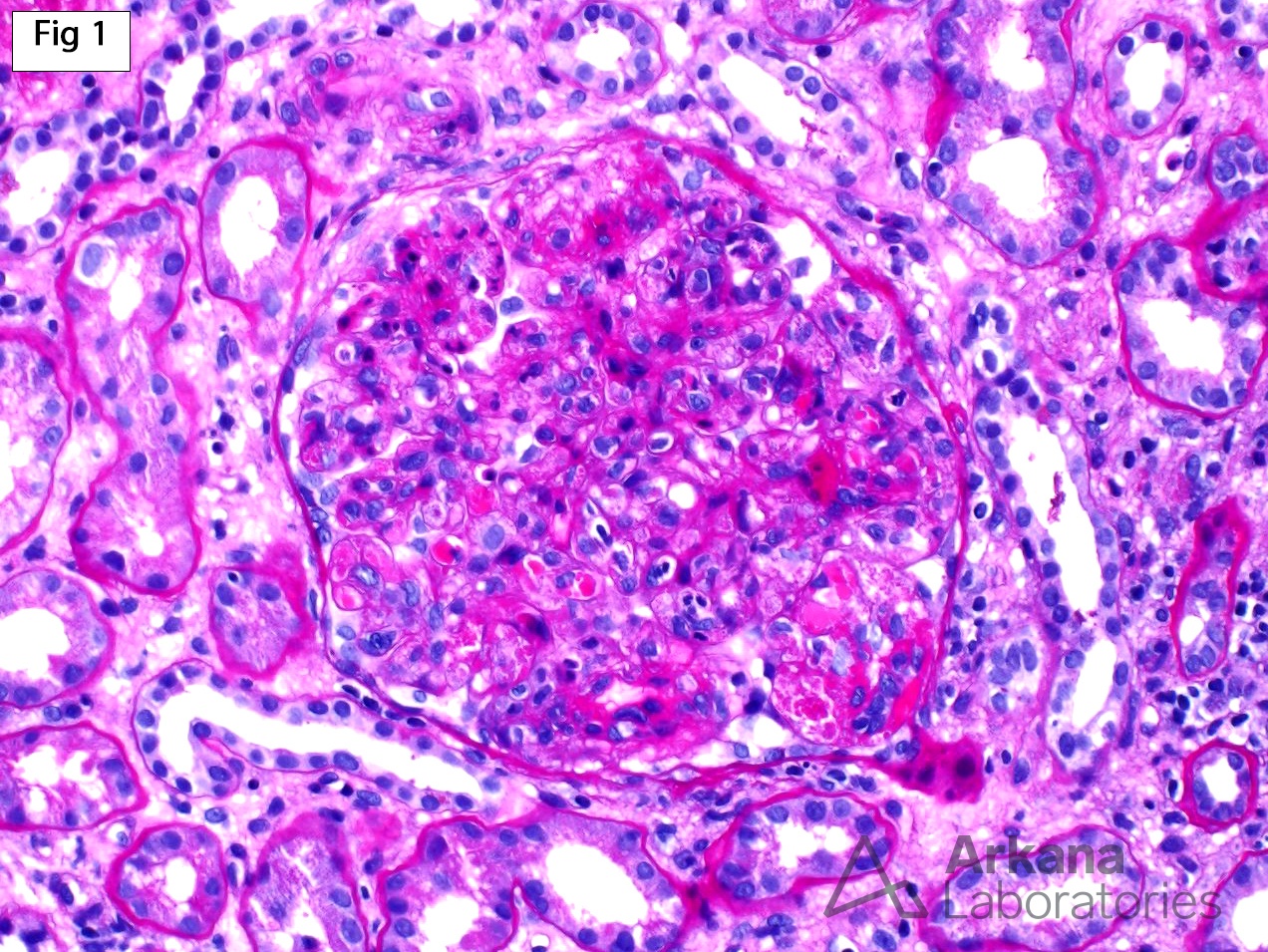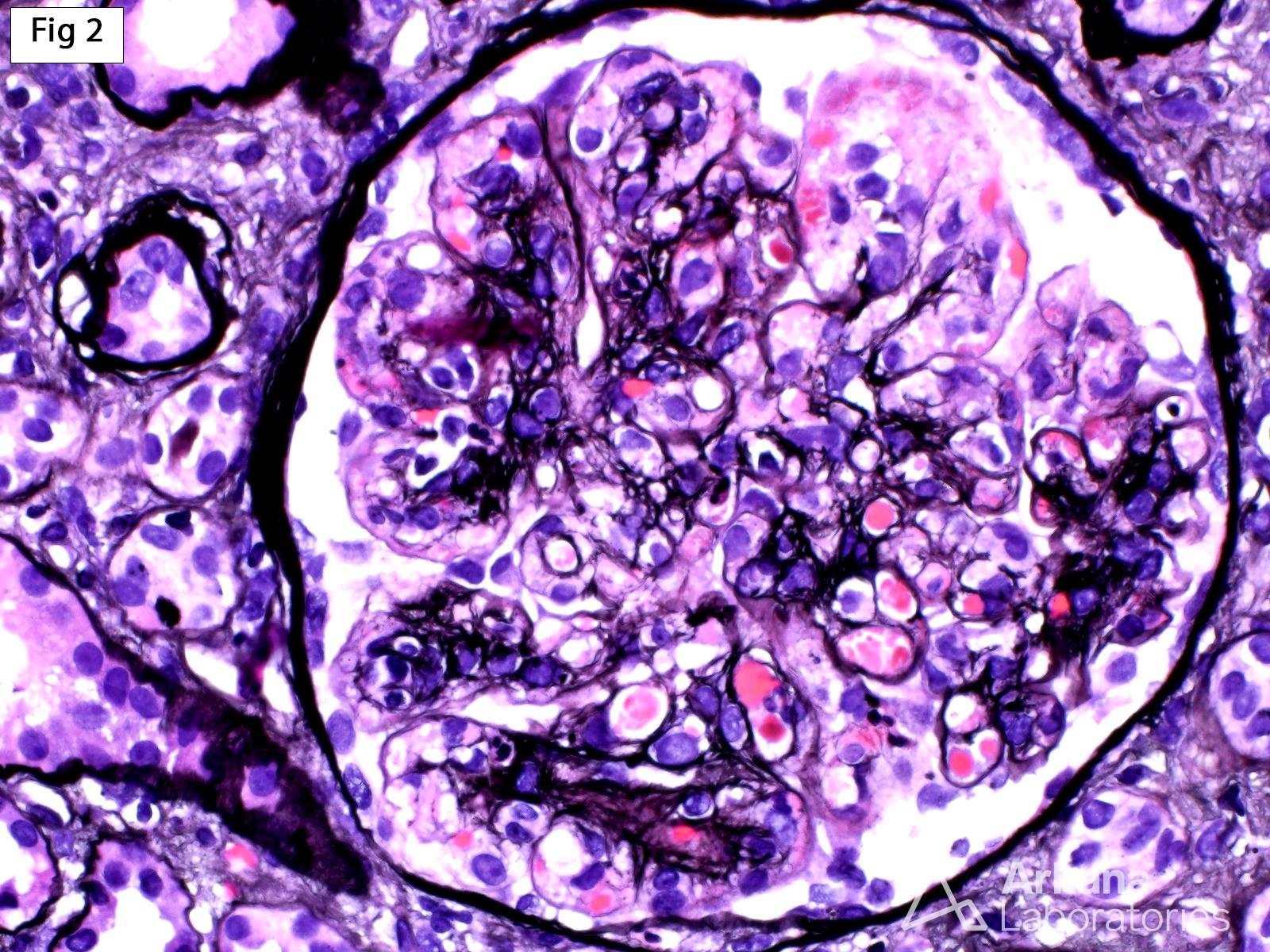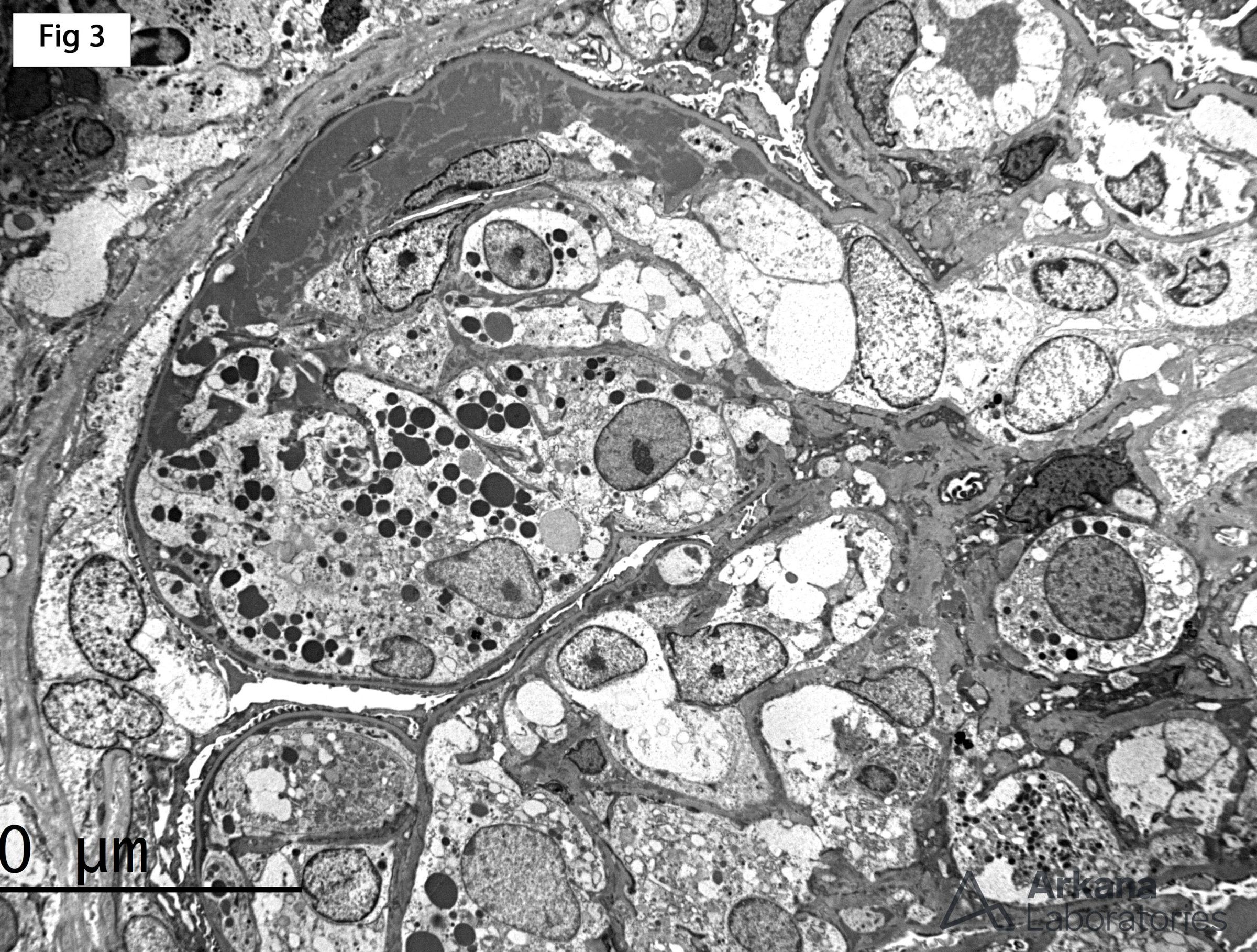This biopsy was performed on a 66-year-old Caucasian male with a history of hepatitis C, who presented with nephrotic range proteinuria (UPC 4.2 g/g), hematuria and increased creatinine (2.5 mg/dl). C3 is 7 mg/dl and C4 <2 mg/dl. The glomerulus shows a membranoproliferative pattern of glomerular injury characterized by mesangial matrix expansion and hypercellularity, associated with endocapillary proliferation, segmental capillary loop double contour formation and accentuation of the lobular architecture (Fig 1&2). Furthermore, the capillary lumens show frequent, large, PAS-positive pseudothrombi (Fig 1). Immunofluorescence (not shown) is positive in a mesangial and global capillary wall pattern for IgG (1+), IgM (3+), C3 (1+), kappa (1+) and lambda (3+). The endocapillary pseudothrombi show a similar positive staining pattern. Electron microscopy shows endocapillary hypercellularity associated with large subendothelial electron-dense deposits (without substructure) and new glomerular basement membrane formation (Fig 3). These findings are consistent with Type II cryoglobulinemic glomerulonephritis. Cryoglobulins are circulating immunoglobulins that precipitate at 4°C and re-dissolve at 37°C. They are classified into three types according to their immunochemical composition. Type I cryoglobulins are composed of a single monoclonal immunoglobulin, usually IgM, and are commonly associated with lymphoproliferative disorders such as Waldenstrom macroglobulinemia, multiple myeloma, low-grade B cell non-Hodgkin lymphoma and chronic lymphocytic leukemia. On the other hand, types II and III, also called mixed cryoglobulins, are composed of immune complexes with rheumatoid factor activity. Type II is usually composed of a monoclonal IgM and a polyclonal IgG, while type III is composed of a polyclonal IgM and polyclonal IgG. Greater than 90% of cases of mixed cryoglobulinemic glomerulonephritis are associated with hepatitis C infection. Other non-infectious causes include autoimmune disorders such as systemic lupus erythematosus, Sjögren syndrome, rheumatoid arthritis, and lymphoproliferative disorders. Renal manifestations of the disease include nephrotic range proteinuria, hypertension, renal insufficiency and microscopic hematuria. Correlation with other laboratory data, such as cryocrit, rheumatoid factor and C4 levels are particularly important.
Quick note: This post is to be used for informational purposes only and does not constitute medical or health advice. Each person should consult their own doctor with respect to matters referenced. Arkana Laboratories assumes no liability for actions taken in reliance upon the information contained herein.




